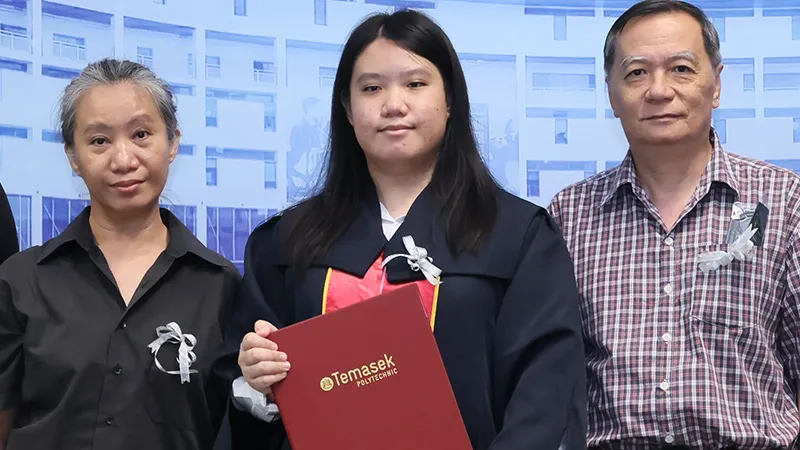All students are required to bring their own notebooks for lessons. You may refer to the required technical specifications for notebook HERE.
This 12-month work-study programme is designed for engineering graduates who are interested to delve deeper in advanced manufacturing. It aims to equip participants with the relevant skills to meet the industry demands for trained specialists in robotics and control & automation. Participants will learn how to install, commission, maintain and troubleshoot robotic and automation equipment.
What You'll Learn
To be awarded the Specialist Diploma in Robotics and Automation, students are required to complete a total of 2 Post-Diploma Certificates (PDCs). Each PDC can be completed in 1 semester, i.e. 6 months. A certificate will be issued once the requirements for each PDC are met. Students must complete the course within 12 months.
For more information on course fee / schedule,
Career Opportunities
At the entry level, the job positions are Associate Engineers1. Upon completing the course under the Work-Study Programme, graduates can look forward to role expansion in their work scope. They can also look forward to upgrading their knowledge and skills through further Continuous Education Training (CET) and executive programmes offered by local Institutes of Higher Learning.
1Job titles may vary across companies
Entry Requirements
Eligibility Criteria
Minimum Entry Requirements for Work-Study Programmes
Work-Study Post-Diplomas
Graduates from the list of feeder Polytechnic Diplomas, ITE Technical Diplomas / Work-Study Diplomas in relevant discipline or equivalent
Work-Study Programme Incentives Eligibility
Work-Study Programmes sign-on incentives are extended to eligible Singaporeans who are:
- within three years of graduation from the Polytechnics/ITE or the Operational Ready Date (ORD) for full-time National Servicemen
This eligibility is subject to prevailing criteria.
| Feeder Programmes | Temasek Polytechnic
Ngee Ann Polytechnic
Singapore Polytechnic
Nanyang Polytechnic
Republic Polytechnic
Other relevant Engineering disciplines |
Course Contact
- 67881212
-
Monday - Thursday: 8:30am - 6:00pm
Friday: 8:30am - 5:30pm
Closed during lunchtime, 12:00pm - 1:00pm
and on weekends and public holidays. - Website: https://www.tp.edu.sg/wsp
-
Temasek SkillsFuture Academy (TSA)
Temasek Polytechnic
East Wing, Block 1A, Level 3, Unit 109
21 Tampines Ave 1
Singapore 529757
Temasek Polytechnic reserves the right to alter the course, modify the scale of fee, amend any other information or cancel a course with low enrolment.










